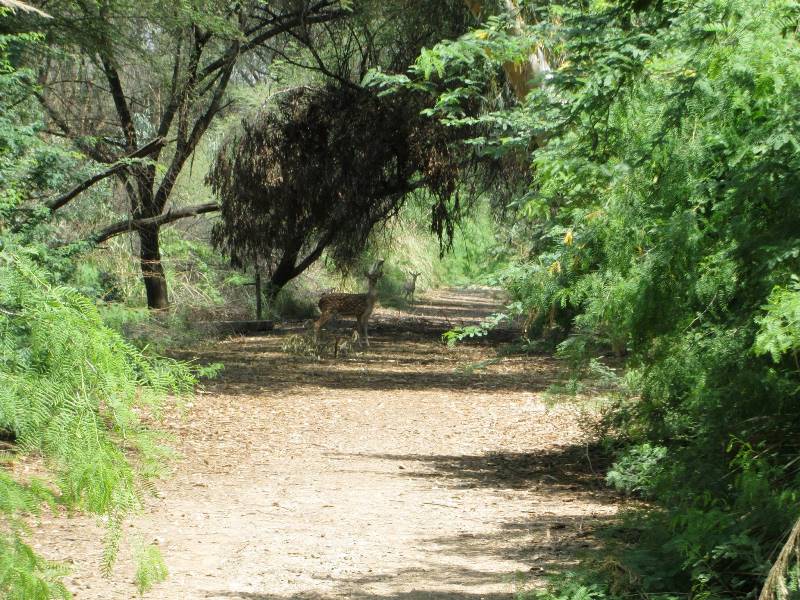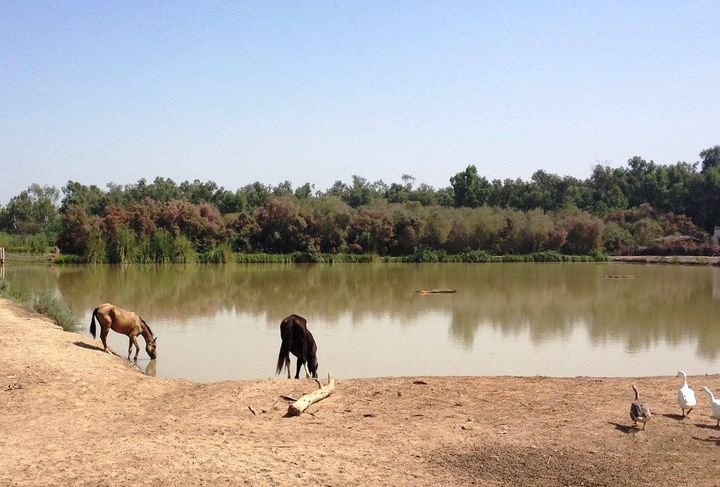Animals escape fire in Ghotki’s Sufi Anwer Shah Safari Park

Over 1.5 acres of land in the Sufi Anwer Shah Safari Park in Ghotki was reduced to ashes after a fire erupted in the wild grass Wednesday night, said the Sindh Wildlife Department.
Immediately after the blaze broke out, people in the nearby areas informed the authorities. “Four fire brigade trucks were called in and the fire was doused within a few hours,” chief conservator Javed Mahar told a private source.
Fortunately, no damage to life or property was reported. “Thankfully, the animals in the park were not caged so when the fire started all of them escaped,” Mahar said.

Sufi Anwer Shah Safari Park is spread over 2,400 acres. It was established in 2008 as a joint venture of the Sindh Forest Department and the United Nation’s Joint Programme on Environment. According to authorities, the park serves as a breeding ground for wild animals and birds such as hog deer, black buck, blue bull, chinkara, pea fowl, grey partridge and black partridge.
How did the blaze start?
Conservator Mahar said that it is suspected that someone visiting the park chucked a cigarette butt in the grass.
“As per the wildlife laws, anyone visiting a wildlife park or conservation area can’t keep cigarettes, lighters, or matches with them,” he pointed out. “In fact, a person carrying any of these things is usually stopped at the entrance.”
The prompt actions of fire fighters, @UmarGandapur1 SSP Ghotki, Usman Abdullah DC Ghotki, Syed Amir Shah @Forestersindh DFO Social Forestry, Park Ranger, staff & neighborhood saved the habitat & properties from being devalued into ashes.
Thanks to all who played their roll.
1/2 pic.twitter.com/dkdBirZR6S— SindhWildlife (@sindhwildlife) February 18, 2021
On the other hand, one of the most common reasons for forest fires is friction in branches. “Forests with pine trees, commonly found in the northern areas, have needle-like leaves that have a component of oil in them,” Mahar explained.
These leaves are volatile and can easily heat up. When a fire in forests such as these erupts, it’s very difficult to stop them because it spreads quickly.
We were lucky here because wild grass doesn’t have any oil component, he said. “The pace of the fire in this park was slow and controllable.”
According to a report by the World Wildlife Fund, in 2020, the number of forest fires across the world increased by a record-breaking 13%. It stated that the increasing number of wildfires is caused by deforestation and climate change.

